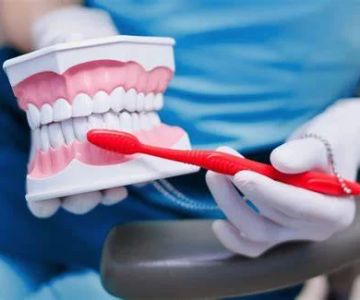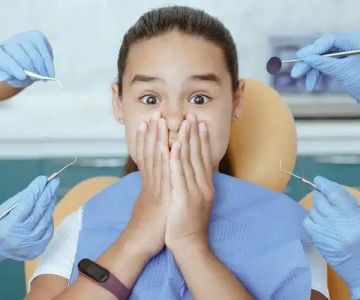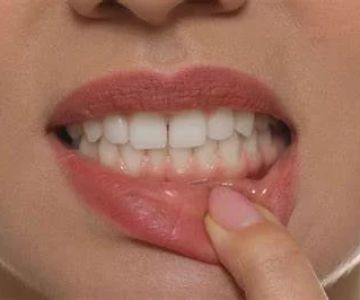Understanding the Importance of Pet Oral Hygiene
Maintaining good oral hygiene for pets is more than just about fresh breath. It plays a crucial role in their overall health and longevity. Just like humans, pets can develop dental diseases that cause pain, infection, and can lead to more serious health problems if left untreated.
Pet oral hygiene is often overlooked, but its significance cannot be overstated. Poor dental health can affect a pet’s ability to eat comfortably, cause systemic infections, and even impact vital organs like the heart and kidneys.
1. Common Dental Problems in Pets
Many pet owners are unaware of the dental issues their furry companions might face. These include:
- Plaque and Tartar Build-up: This sticky film forms on the teeth and can harden into tartar, leading to gum irritation.
- Gingivitis: The early stage of gum disease marked by redness, swelling, and bleeding gums.
- Periodontal Disease: A serious infection that damages the structures supporting the teeth, potentially causing tooth loss.
- Oral Pain and Discomfort: Dental disease can cause significant pain, leading to decreased appetite or changes in behavior.
2. How Poor Oral Hygiene Affects Overall Health
The mouth serves as a gateway to the rest of the body. Bacteria from untreated dental disease can enter the bloodstream and cause systemic infections affecting the heart (endocarditis), liver, and kidneys. This connection highlights why veterinarians stress regular dental care for pets.
For example, a study involving dogs with periodontal disease showed an increased risk of heart valve infections. These insights emphasize that pet oral hygiene is integral not only to oral health but to whole-body wellness.
3. Recognizing Signs of Dental Problems in Pets
Early detection is key to preventing severe dental diseases. Pet owners should watch for signs like:
- Bad breath (halitosis)
- Excessive drooling
- Difficulty eating or chewing
- Swollen or bleeding gums
- Pawing at the mouth
- Loose or missing teeth
Noticing these symptoms should prompt a prompt veterinary dental examination.
4. Effective Ways to Maintain Your Pet’s Oral Hygiene
Preventing dental disease starts with regular oral care. Here are some essential steps:
4.1 Brushing Your Pet’s Teeth
Daily brushing is the gold standard. Using a pet-safe toothbrush and toothpaste, you can significantly reduce plaque and tartar buildup. Although it might take patience to train your pet, the long-term benefits are undeniable.
4.2 Professional Dental Cleanings
Regular visits to the veterinarian for professional cleanings help remove hardened tartar and check for hidden problems. Most vets recommend annual cleanings depending on the pet’s age and health.
4.3 Dental Chews and Toys
Dental chews and specially designed toys promote mechanical cleaning of teeth and stimulate saliva production, which naturally helps reduce plaque.
4.4 Special Diets and Water Additives
Some prescription diets and water additives can support oral health by reducing bacteria and strengthening teeth. Consult your veterinarian about these options.
5. A Story of Transformation: Max’s Dental Journey
Max, a senior golden retriever, was suffering from severe periodontal disease that made eating painful and affected his overall mood. His owner began a dedicated oral care routine, including daily brushing and professional cleanings recommended by their vet.
Within months, Max’s breath improved, his eating habits normalized, and he regained his playful spirit. Max’s story is a powerful reminder of how attentive pet oral hygiene improves quality of life.
6. Why You Should Act Now to Protect Your Pet’s Smile
Ignoring oral health can lead to costly treatments and suffering for your pet. Preventive care is more affordable, less stressful, and more effective. By prioritizing pet oral hygiene, you invest in your pet’s happiness and longevity.
For expert advice and personalized recommendations, visit Dentistry Toothtruth to find the best products and services tailored to your pet’s needs. Taking that first step can make all the difference in your furry friend’s health.







 Westgate Dental Arts3.0 (2 review)
Westgate Dental Arts3.0 (2 review) Coventry Family Dental4.0 (247 review)
Coventry Family Dental4.0 (247 review) Familia Dental3.0 (1028 review)
Familia Dental3.0 (1028 review) Dr. Daniel S. Fife, DDS4.0 (31 review)
Dr. Daniel S. Fife, DDS4.0 (31 review) Dentistry At Suburban Square: Michael I. Wollock, DMD4.0 (1228 review)
Dentistry At Suburban Square: Michael I. Wollock, DMD4.0 (1228 review) Comfort Care Dental4.0 (1156 review)
Comfort Care Dental4.0 (1156 review) The Importance of Oral Health Education During Pregnancy for a Healthy Pregnancy
The Importance of Oral Health Education During Pregnancy for a Healthy Pregnancy Why Skipping Dental Checkups Can Lead to Bigger Oral Health Problems
Why Skipping Dental Checkups Can Lead to Bigger Oral Health Problems Best Tips for Brushing Your Teeth Properly for Healthy Gums: Essential Techniques for Oral Health
Best Tips for Brushing Your Teeth Properly for Healthy Gums: Essential Techniques for Oral Health Advantages of Porcelain Dental Restorations
Advantages of Porcelain Dental Restorations How Can Diabetes Cause Tooth and Gum Problems? Preventing and Managing Oral Health Issues
How Can Diabetes Cause Tooth and Gum Problems? Preventing and Managing Oral Health Issues Healthy Habits for Promoting Good Oral Health and Hygiene: Tips for a Healthy Smile
Healthy Habits for Promoting Good Oral Health and Hygiene: Tips for a Healthy Smile